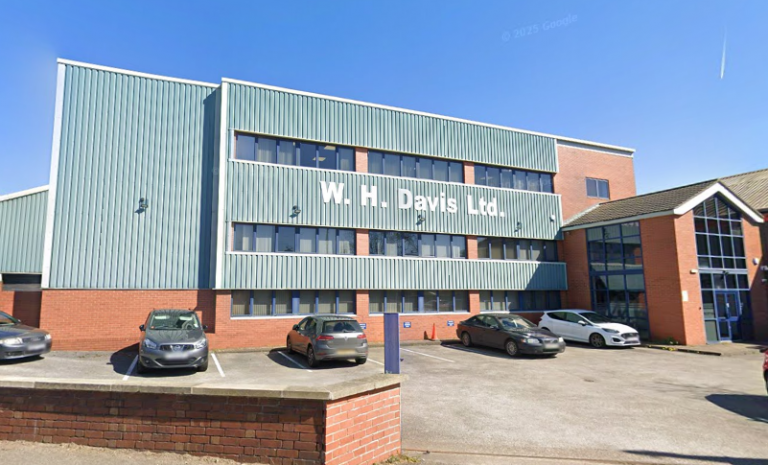Kinchbus to support Epilepsy Action as charity of the year
Latest corporate insolvency figures indicate tentative signs of economic recovery
Phenna Group makes strategic acquisition in Europe
SFERA – Engineering Solutions is a nationwide engineering firm founded in 2013 to support companies in managing regulatory compliance as well as designing and managing production operations.
Sfera specialises in regulatory consultancy, offering services such as regulatory gap analysis, risk assessments, CE marking of machinery, system design and engineering, and Pressure Equipment Directive (PED) compliance.
Daniele Giustiniani, CEO of Sfera Srl, said: “Joining Phenna Group marks a new chapter for Sfera. We will continue to serve our clients with the same focus and expertise, now enhanced by international collaboration and the backing of a dynamic and forward-thinking group.”
Phil Marshall, CEO of Phenna Group, added: “This acquisition is a cornerstone of our European growth strategy. Sfera adds new capabilities to our Group, particularly in advisory and operational excellence, and strengthens our presence in a key market. We are excited to welcome the team and look forward to working together to deliver high-value outcomes for our clients.”
The acquisition of Sfera aligns with Phenna Group’s broader strategy to build a diverse network of Testing, Inspection, Certification, and Compliance (TICC) businesses, augmented by specialist advisory and support services.British Business Bank boosts SME lending with Close Brothers
The British Business Bank has secured a transaction of up to £300 million with Close Brothers under the ENABLE Guarantees programme. The deal expands lending capacity for Close Brothers Asset Finance, covering hire purchase, sale and leaseback, and leasing products.
The expanded facility targets smaller businesses seeking finance for essential capital assets, including vehicles, machinery, and equipment. Funding may also support investment in green and sustainable assets. In 2024, asset finance accounted for around a third of UK investment in these areas, according to the Finance & Leasing Association.
The ENABLE Guarantees programme provides a government-backed guarantee to encourage additional lending to small and medium-sized enterprises (SMEs). It applies to UK banks, branches of foreign banks, and asset-based finance providers lending to viable SMEs. Participating lenders receive support for defined portfolios of debt finance in return for a fee.
Close Brothers Commercial, which delivers almost £5 billion in lending annually to UK businesses, will use the additional capacity to extend finance to a broader range of firms. Loan amounts range from £5,000 to £100 million. The programme aims to improve access to finance for SMEs, particularly during periods of economic uncertainty.
WH Davis to create 20 jobs in Shirebrook in €44m export deal
Growth prospects in technology, AI and innovation fuel confidence as East Midlands private firms target expansion in H2
New CEO appointed at Leicestershire County Cricket Club
HAIG Legal Group expands into larger Lincoln headquarters
HAIG Legal Group has moved its operations to Pinnacle House on Doddington Road, Lincoln, consolidating offices previously located on Low Moor Road in Lincoln and Coventry Road in Birmingham. The relocation provides 14,832 sq ft of office space, a 67% increase on the previous footprint.
The move supports the group’s expansion strategy, which includes a planned 17% increase in headcount across its three businesses—Simpler Law, Fidelis Legal Services, and Northwood Banks & Co—raising staff numbers from 135 to more than 155 by the end of 2025.
Property agents Eddisons and Pygott Crone jointly represented the landlord in securing the premises. Pinnacle House offers scale and facilities designed to enhance operational efficiency while accommodating long-term growth.
The relocation positions HAIG Legal Group to strengthen its presence in Lincoln, leveraging the city’s status as a growing hub for professional services.
Lincolnshire architects to revive historic Boston building following purchase
Derby receives £3.2 million for city regeneration projects
Derby will receive £3.2 million in Government funding to continue regeneration initiatives across the city over the next year. The allocation comes through the UK Shared Prosperity Fund and will be administered by the East Midlands Combined County Authority.
The funding will support local projects aimed at business growth, urban renewal, and workforce development. Plans include enabling entrepreneurs to establish and expand operations in vacant city-centre units, improving public spaces, and delivering skills and employability programmes for residents.
An additional £300,000 has been earmarked for inward investment, managed by Marketing Derby to attract new businesses and secure capital investment.
A previous programme supported more than 25 projects, offering grants and advisory support to 168 businesses and generating £53 million in capital investment. The associated employment and skills hub helped 125 individuals enter employment or self-employment and enabled 300 residents to obtain new qualifications.
The funding is part of a broader effort to continue economic growth and regeneration in Derby, building on past investments and initiatives to strengthen local business and community infrastructure.












